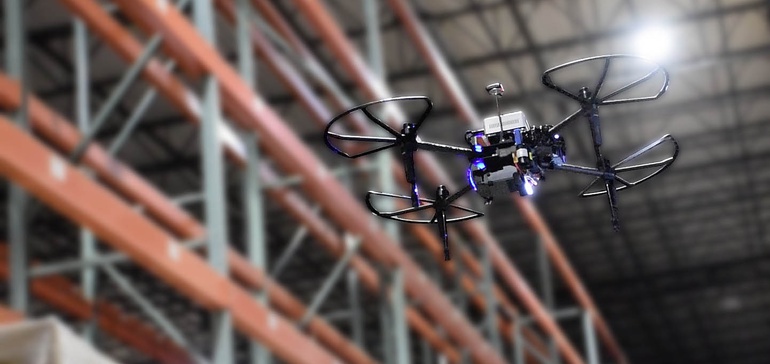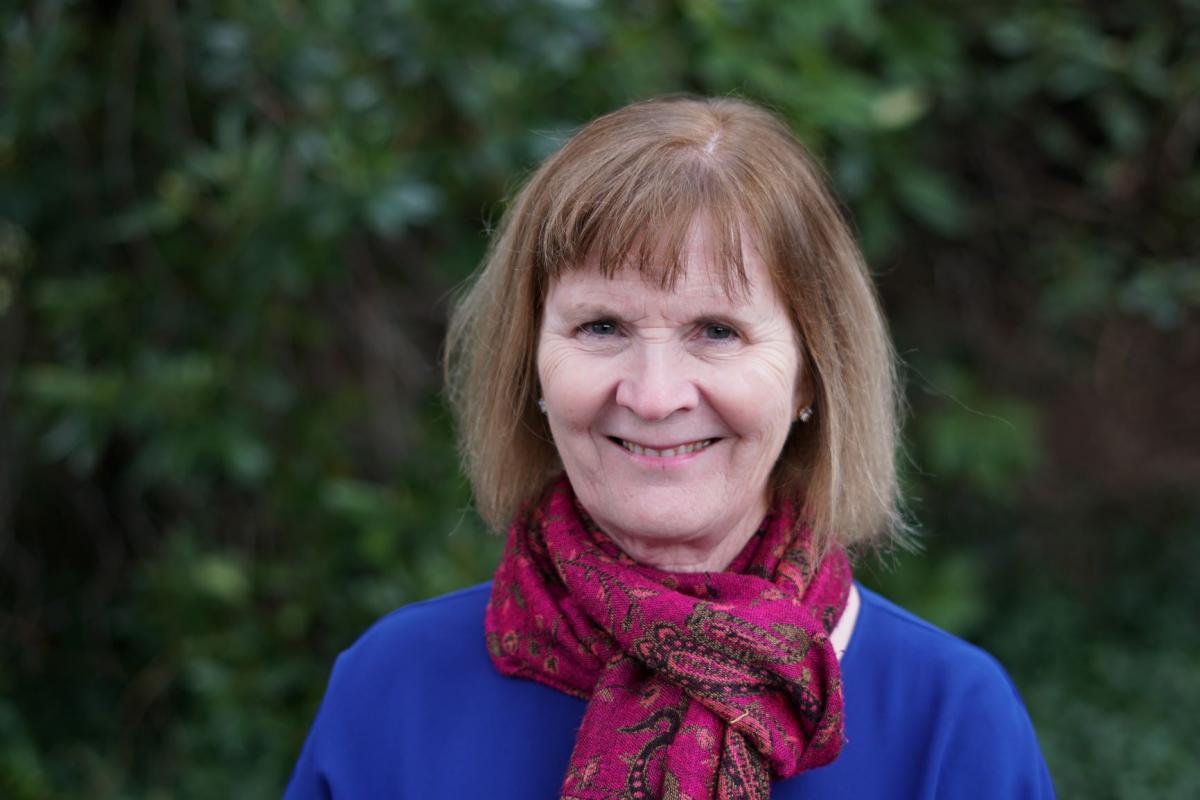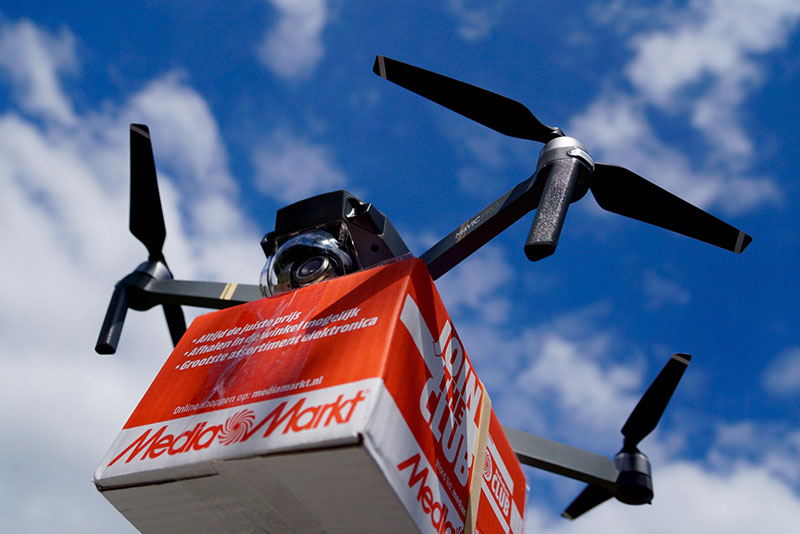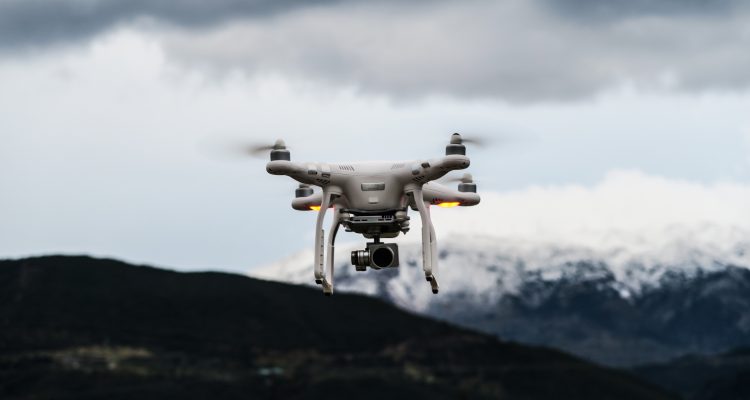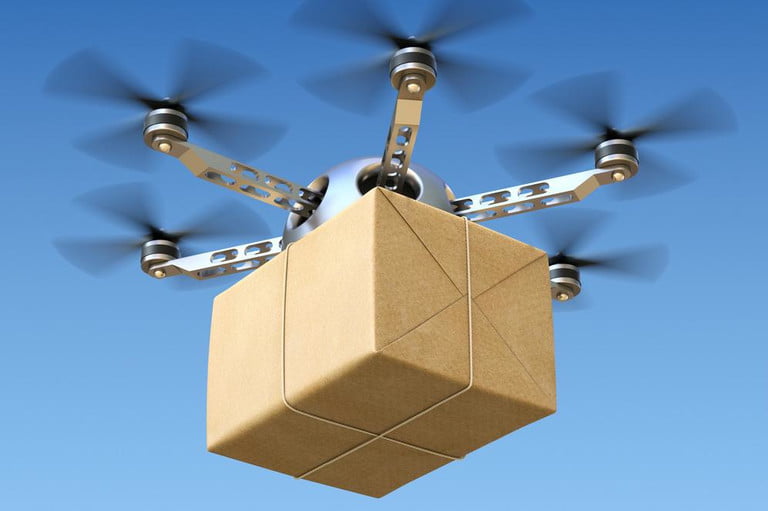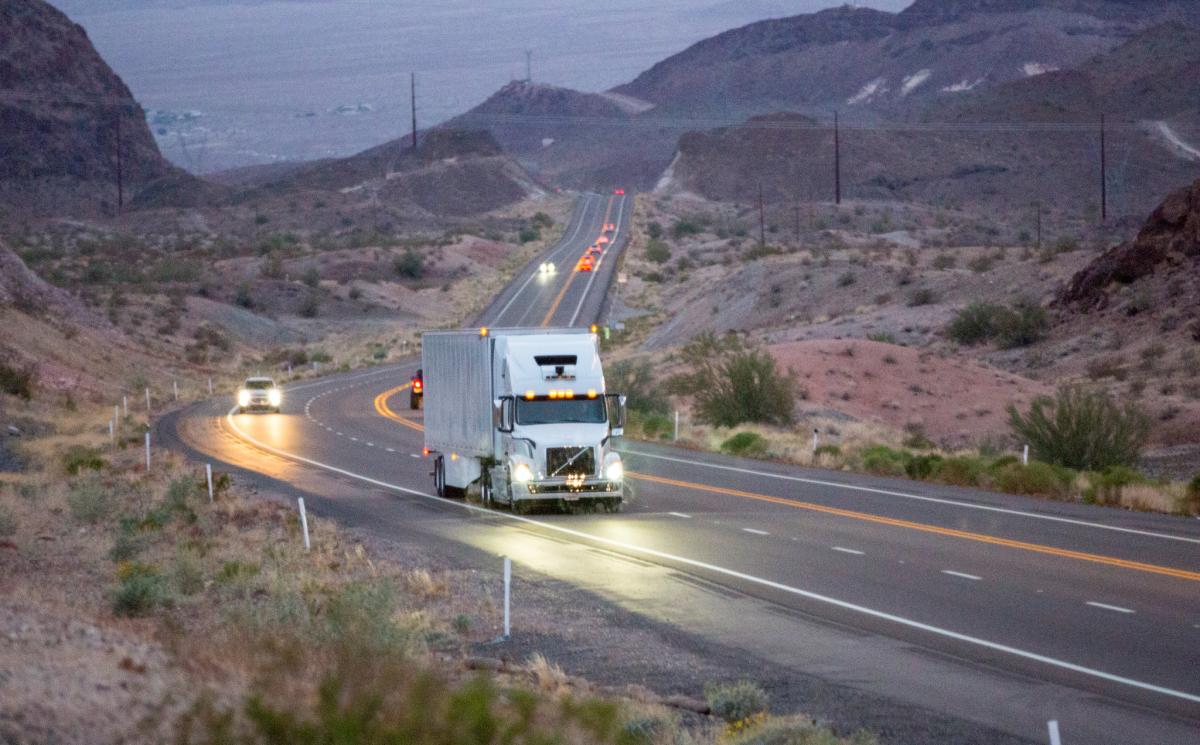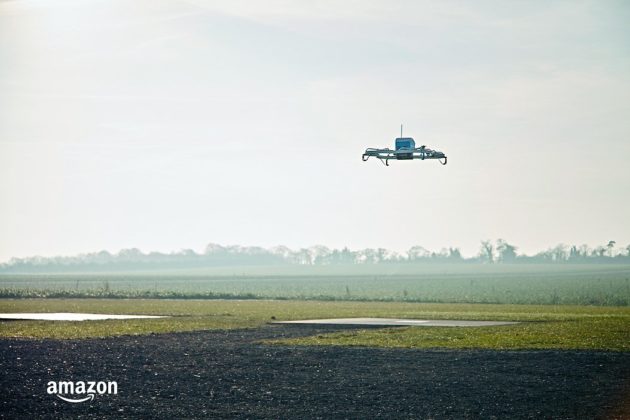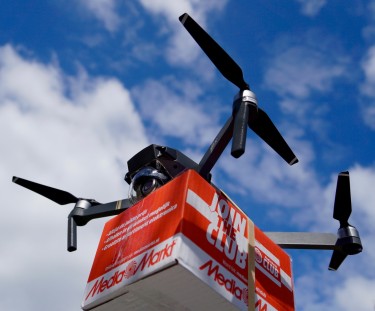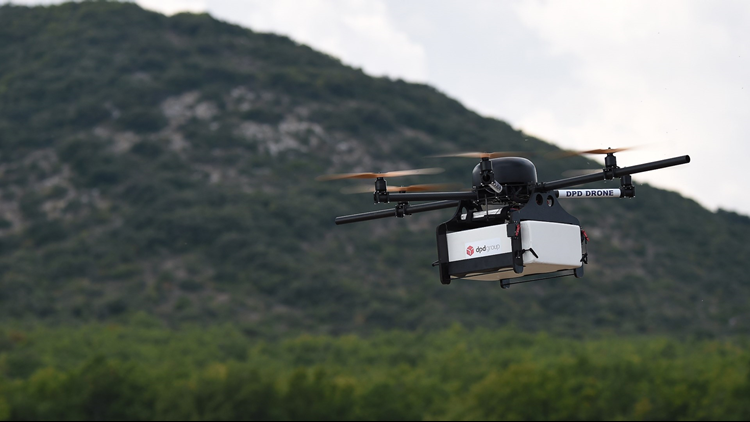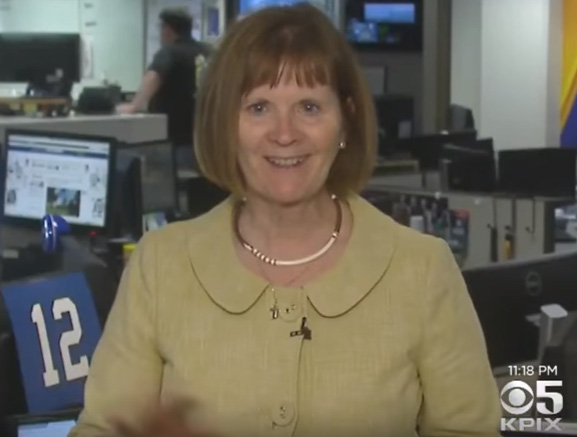In the Media
Research by the University of Washington says even fleets of drones paired with trucks may be the most efficient system.
Barbara Ivanov promotes and facilitates practical research results, both as Director of the Urban Freight Lab at the University of Washington (UW) and as Chief Operating Officer of the Supply Chain, Transportation, and Logistics Center.
Delivery by drone sounds cool and futuristic, but when it comes to being environmentally friendly, does it really beat a truck drop-off? It depends, according to researchers from the University of Washington.
A new study from University of Washington researchers indicates that drone delivery may indeed lead to a lower carbon footprint — if it’s done properly. “I was amazed at how energy-efficient drones are in some contexts,” said Anne Goodchild, who led the research.
A new University of Washington study has revealed that making deliveries with drones is better for the environment than using trucks.
In a new study carried out by transportation engineers at the University of Washington, researchers compared the carbon dioxide emissions of delivery drones against trucks when both were being used to deliver packages. Which is better for the environment? The answer is different than what you might expect.
Delivering packages with drones can reduce carbon dioxide emissions in certain circumstances as compared to truck deliveries, a new study from University of Washington transportation engineers finds.
“Trucks compete better on heavier loads, but for really light packages, drones are awesome,” said author Anne Goodchild.
Delivering packages with drones can reduce carbon dioxide emissions in certain circumstances as compared to truck deliveries, a new study from the Urban Freight Lab finds.
Delivering packages with drones can reduce carbon dioxide emissions in certain circumstances as compared to truck deliveries, a new study from University of Washington transportation engineers finds.
Delivering packages with drones can reduce carbon dioxide emissions in certain circumstances as compared to truck deliveries, a new study from University of Washington transportation engineers finds.
University of Washington researchers have found that delivering packages with drones can help reduce carbon emissions in comparison to delivery by truck.
Barb Ivanov talks with CBS about the ease of online ordering and the goals of the Urban Freight Lab to reduce freight congestion.
Created in 2016, the Urban Freight Lab is looking into “high-impact, low-cost solutions for businesses delivering goods in urban settings and cities trying to manage limited curb and parking space where delivery trucks, bicycles, pedestrians and cars all need to coexist.” They’ll be testing solutions like centralized drop-off lockers, and improved management of alleys and curb space, both in simulations and the real world.
The City of Seattle’s Freight Master Plan and the SCTL Urban Freight Lab’s research are identified as potential policy solutions for urban freight congestion.
